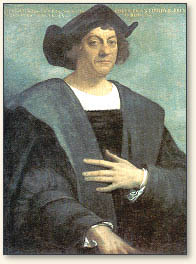| History
Dates That Changed The Western World: 1492 and ‘The Age of Discovery’
 In 1492, Columbus sailed the ocean blue. So goes the rhyme that many schoolchildren still learn in order to remember the date which has come to be thought of as the moment Europe ‘discovered’ North America. In truth, this is a lesson in how picking out single years as ‘turning points’ is a little false: the Vikings had reached Newfoundland as early as 1000AD, for instance, and Columbus only made it to Hispaniola, all of which makes 1492 a rather less auspicious year for North America that the nursery rhyme suggests.
In 1492, Columbus sailed the ocean blue. So goes the rhyme that many schoolchildren still learn in order to remember the date which has come to be thought of as the moment Europe ‘discovered’ North America. In truth, this is a lesson in how picking out single years as ‘turning points’ is a little false: the Vikings had reached Newfoundland as early as 1000AD, for instance, and Columbus only made it to Hispaniola, all of which makes 1492 a rather less auspicious year for North America that the nursery rhyme suggests.
Nevertheless, 1492 represents a defining moment for a process of exploration and exploitation which had been gaining ground throughout the latter half of the fifteenth century. In August of that year, Columbus, a Genoan, sailed with three ships funded by the King of Portugal to find what all involved hoped would be a shorter, easier navigation to the rich trading routes of Asia. In the event, there was another continent in the way – and it was one which itself would soon be subject to many more state-funded European visits in a process which rapidly developed into what we now call colonialism. This had all sorts of consequences for the indigenous peoples, for geopolitical relations between states, and, ultimately, for the phenomenon that would come to be known as ‘imperialism’.
So by all means remember 1492 … but perhaps not so much for the ‘discovery’ as for the method, means and motives behind it.



